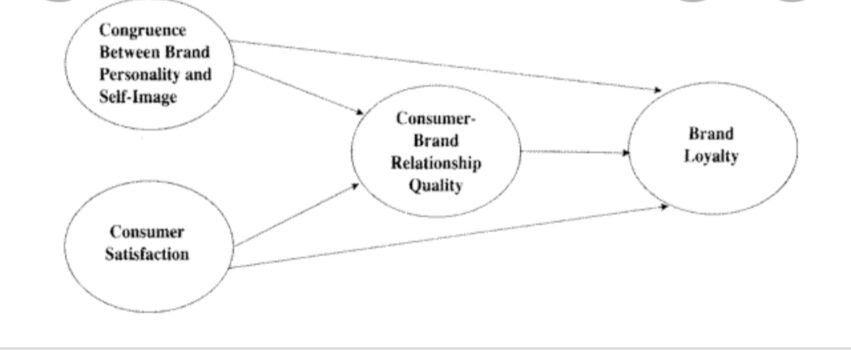Brand Personality
Brand Personality is defined as a set of human characteristics that are effectively attributed to a brand name. The brand is responsible for bringing increment in the brand equity by possessing the consistent set of traits that a specific customer segment enjoys. The brand personality is referred to as a qualitative value add-on that a brand gains apart from all functional benefits. A brand of a company must always focus to elicit a positive emotional response from its targeted group audience. The importance of brand personality had significantly increased in this digital era of artificial intelligence and automation. It is particularly a framework that aids an organization to shape the way people feel about its product, services, and mission. People prefer to choose those products which match their personality. The five main types of brand personalities with few common traits:
- Excitement- carrying the traits of carefree, spirited, and youthfulness
- Sincerity- includes kindness, thoughtfulness, and orientation concerning family values
- Ruggedness- with traits of being rough, tough, outdoorsy, and athletic
- Competence- with successfulness, accomplishment, and influence, reflected by leadership
- Sophistication- inculcated with elegance, prestigious, etc.
Brand Personality congruence is a critical determinant of brand love and brand loyalty which move towards the suggestion of congruence between the consumer personality and the brand which is essential enough to the luxury branding sector. It would help in establishing a relationship between brand attachment and loyalty.
Effect of brand personality congruency
The major effect of brand personality self-congruency (BPC) had on brand engagement and purchase intention and even helps in investigating how self-esteem contributes to the Moderation of the relationship between brand engagement self-congruent, brand engagement, and purchase intention. BPC had a significant and positive impact and influence on brand engagement and purchase intention of clients. Brand engagement is responsible for mediating the relationship partially between BPC and purchase intention. BPC stays responsible for reflecting conditional indirect effect on the purchase intention through brand engagement depending on the level of self-esteem. Participants with less morale compared to people with higher self-esteem on a specific basis are more likely to seek brands that will aid them to realize their ideal self-concept.
The congruence between brand personality and self-image
The research hypothesis helps in defining the congruence between consumer self-concept and brand image which tries towards explaining consumer choice including- brand preference, purchase intention or usage, and consumer loyalty. One of the researchers briefly outlines the importance of self-concept theory in consumer behavior research by saying, that consumers who perceive product images to be consistent enough with their actual self-concept will make them feel motivated to purchase and consume the product. So, the congruence between self-image and product image can bring a greater influence on consumer preference, purchase intention, ownership and usage, and loyalty towards products and brands. Measuring the influence of congruence between brand image and self-image on the evaluation of a brand relates to the promotional message. It suggests that under the promotional message that reminds the consumer of their self-image, where consumers are more likely to give positive evaluations of the brand congruent with the self-image. Keller, as a researcher, defines brand personality as a category of brand image which is made up of the brand user and imagery attributes. Plummer, the famous researcher asserts the fact that one of the components of brand image is the personality or character of the brand itself. Thus, it can be inferred that the congruency so developed between brand personality and self-image had a positive influence on customer satisfaction, consumer brand relationship, and brand loyalty.
Brand personality and customer satisfaction
Brands possess several opportunities to effectively build a relationship with consumers. Consumers, thus look forward to building a relationship with the brand when they consider that a brand is beneficial or suitable to them. If the consumer perceives to get good value and is satisfied enough using the brand, then they will build an effective relationship with the brand.
Conclusion- due to congruency between brand personality and self-image, the low self-esteem so generated out of the underlying brand evoked due to risky self-exposure, doesn’t interfere with the positive emotions. As result to it, these are the only positive emotions towards the brand that work towards enhancement of the consumer’s emotional brand. In the case of the ideal self-congruency concept self-enhancement strategies are one that becomes the area of the center. The people with high self-esteem, less gap is experienced between their actual beings and ideal selves. People with high morale rarely attempt to bolster their feelings as their actual self-discrepancy tends to be lower. The people with positive feelings about the brand experience greater emotional brand attachment.

